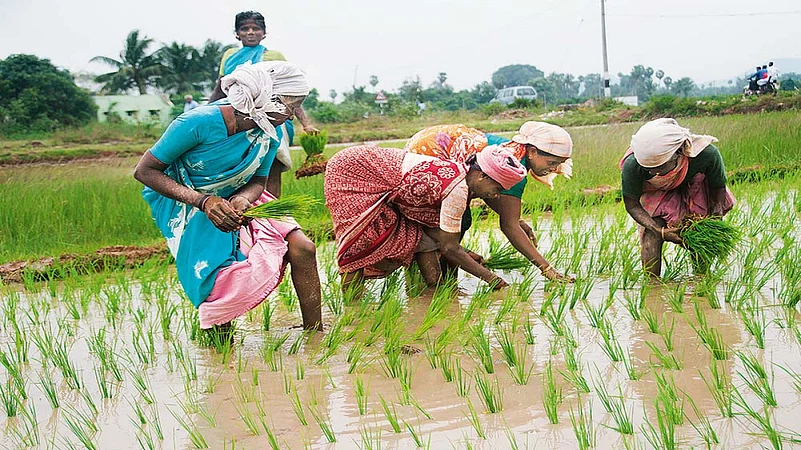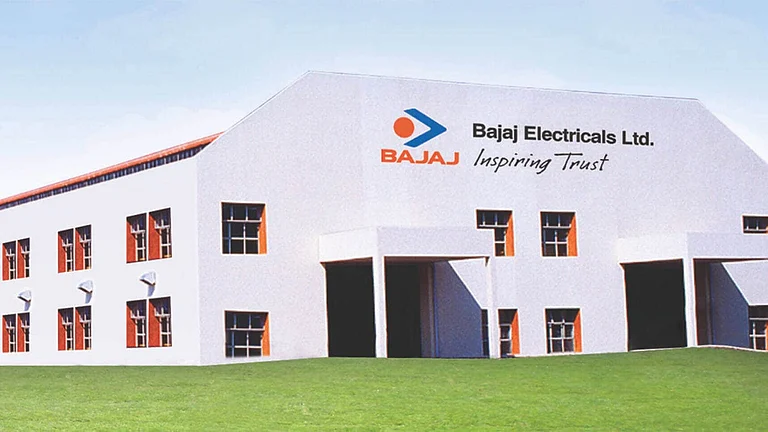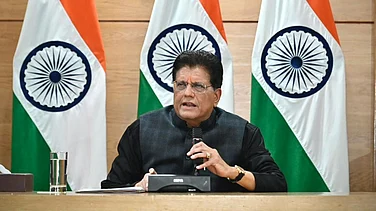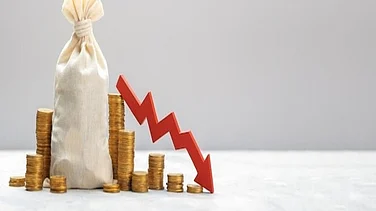Data released in a new report by market analytics firm Crisil showed that the sowing area of pulses is lagging substantially compared to the previous year. According to the report, area sown under pulses till July 28 was 11.3 per cent lower compared to the same period in 2022.
However, while pulses continue to struggle, other kharif crops have posted year-on-year growth. According to Crisil’s data, rice sowing has seen around two per cent growth, area under coarse cereals has increased by 1.6 per cent and oil seeds' area sown is up by two per cent. Overall, the area sown under kharif crops has declined by 0.3 per cent compared to the same period last year.
Also Read | How Can Below-Normal Monsoon Impact Indian Economy?
Amidst the ongoing monsoon, the data for kharif crops is being closely watched due to the onset of El Nino effect this year. In the past, the phenomenon has led to deficit rainfall in the country. India Meteorological Department (IMD) had predicted that the country will see normal rainfall at 96 per cent of long period average (LPA). Rainfall between 96-104 per cent of LPA is considered normal. While the country’s met department had predicted a normal monsoon, Skymet in its report had said that India could record 94 per cent of LPA which would lead to deficit rainfall.
Indian Monsoon So Far
Crisil’s economists noted in their report, “The southwest monsoon started with a delay and stayed in deficit in June. However, it caught up well in July, and currently stands at normal.”
According to the data cited, out of the nine rain dependent states as defined in the report, eight of them had recorded normal or excess rainfall till August 1. The rain dependent states are the regions where irrigation is below average. As per the report, those are Jharkhand, Assam, Chhattisgarh, Odisha, Karnataka, Maharashtra, Uttarakhand, Himachal Pradesh and Rajasthan.
Jharkhand has recorded deficit rainfall among these states while Rajasthan has seen excess rainfall with largest deviation from LPA. Among the states where irrigation is above average, Bihar, Kerala and West Bengal have recorded deficit rainfall.
Commenting about the pattern of monsoon this year, the economists noted in their report, “Monsoon’s volatility has been higher this year compared with the normal and the past five years.”
Apart from deficit rainfall, concerns about excess rainfall in northwest India have also been raised. The report noted that major crop producer states like Gujarat, Punjab and Rajasthan saw intense spells of rainfall in July. “Since excess rains happened at the onset of sowing, farmers seemed to have delayed sowing to drain excess water,” the economists noted.
Inflation Pressure
While the sowing of most of the kharif crops have picked up, the report has raised concerns over the vulnerability of pulses due to the lagging sowing data. Pulses had recorded 10.5 per cent inflation in June. Rice and coarse cereals’ inflation was also high in the previous month as the consumer price index (CPI) inflation picked up in June. It was recorded at 4.8 per cent. The inflation is also projected to rise further in July.
Crisil noted in its report that factors other than monsoon have been increasingly shaping food inflation. It noted that the food inflation was high in three of the previous four years despite normal monsoon. “[The factors] include extreme weather events, domestic policy and geopolitical developments,” the report said.
However, the report noted that uneven monsoon and El Nino still remain key risks for food inflation in this financial year. All eyes are now set on the RBI monetary policy committee (MPC) meeting which will take place from August 8 to 10. Experts expect the central bank to continue its pause stance on repo rate amidst sustained pressure on CPI inflation, news agency PTI reported.
































